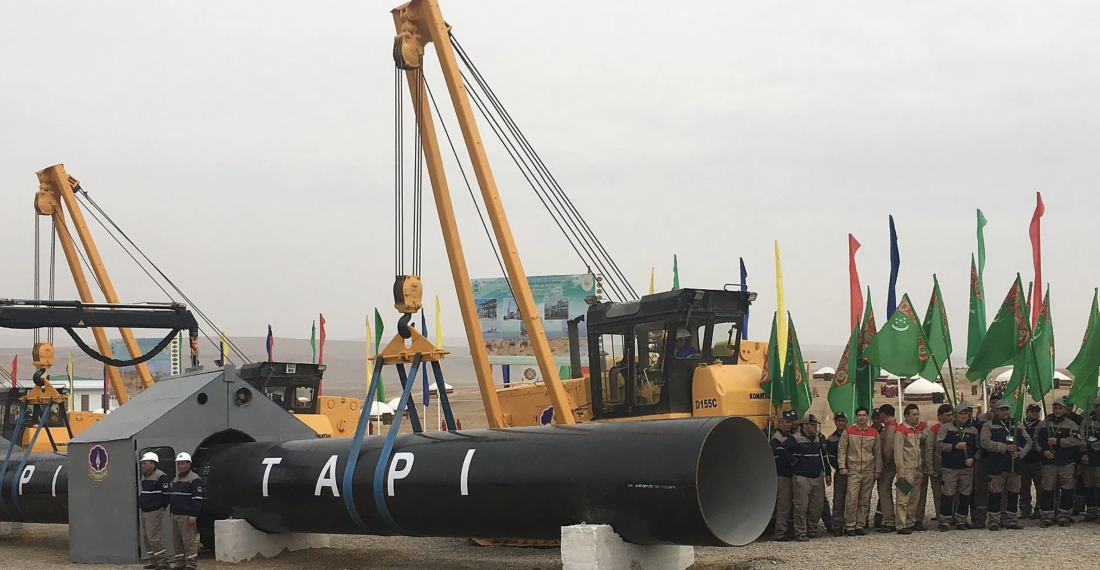The idea of the TAPI pipeline, designed to transport gas from Turkmenistan through Afghanistan to Pakistan and India, has been around for approximately 30 years. However, in practice, little progress has been made. Clashes between Pakistan and India in May this year and renewed fighting on the Pakistan–Afghanistan border have further slowed implementation (check out Monday Commentary: South Asian nations must avoid a catastrophe, on commonspace.eu for further information).
Despite this, Turkmenistan and Afghanistan recently held a ceremony on Monday (20 October) to inaugurate a small section of the pipeline between the Turkmen–Afghan border (Serhetabat) and the Afghan city of Herat. According to Afghan officials, about 14km of pipe have been laid, with 70km more planned. For now, the focus of the project appears to be on constructing the pipeline as far as Herat in Afghanistan.
There are a few challenges that the TAPI pipeline continues to face. Firstly, security inside Afghanistan remains a major issue, though security conditions have changed under the Taliban. The Taliban, through its imposition of brutal control, has reduced security concerns; however, the problem is far from over. Secondly, the tensions between India and Pakistan raise doubts about whether gas flows can pass through both countries reliably. While the project is designed to increase regional trust and stability, Central Asia analyst Bruce Pannier argues that the pipeline could just as easily become a manipulation tool. If, for example, there is renewed fighting between Pakistan and India or Pakistan and Afghanistan, there is a high chance that Pakistan may stop the gas flow into India or that Afghanistan may stop the gas flow into Pakistan. Thirdly, financing and infrastructure gaps remain large. The pipeline is planned for 33 billion cubic metres of gas per year, but Afghanistan’s infrastructure can handle only a fraction of this.
While the TAPI project is still officially active, its goals are now much smaller and slower than first planned. Turkmenistan and Afghanistan are moving forward with a limited version, but the dream of reaching Pakistan and India is still far away.






